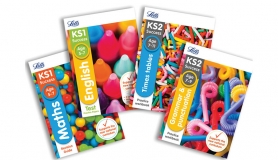‘Every child will react differently to stress – you may see uncharacteristic withdrawal, outbursts of temper, loss of appetite, or simply heightened emotions – try to be aware of anything out of the ordinary. But, when you identify it, avoid confrontation (‘I know you’re stressed, but…’), and condescension, (‘We all know you’re stressed…’). Be understanding: remember, even as an adult you don’t like to be told how you feel, even if it is true.
It’s best to take action in advance – don’t wait for the signs of stress to emerge. Create a calming environment. Don’t make everything about exams, don’t shut normal household life down. Have a chat about when your child would like to study, and how; provide guidance by encouraging a study timetable, with times for each subject, and enforced breaks to allow the mind to settle and rest. Talk to them about study, but also about other things.
Panic can be tricky to deal with. If your child starts to panic, let them know that there is life beyond the exams. Talk about fun family things, remember family anecdotes – emphasising the family reinforces the notion of support around the child. Laughter is great – watch your favourite comedy show together, and feel the mind relax and become receptive again.
It is all about creating the environment — only they can do the study — and a good open and understanding dialogue between the two of you. anamaya.co
GET MINDFUL
Successful study is never about applying time — it is about applying the mind. Problems often arise by confusing or merging the two. Here are Graham’s ideas to establish a calm, receptive state for study:
- CLEAR SPACE - Prior to each study session, your child should clear their workspace, but with intent. It’s like a Japanese tea ceremony: slow and deliberate. Following the clearing, set out the materials for the new session.
- BREATHE - Sit quietly for between three and five minutes before study. Use a simple meditation technique: simply sit quietly, eyes shut, spine upright, and make an active effort to follow your breath. Let your thoughts float away, and concentrate on your breath. If you find it hard, count as you breathe. Do this for five minutes before study.
- MAKE A STATEMENT - After sitting, when settling down to commence study, make a statement of intention: ‘Now I am going to study chapters three and four.’ Much as it may sound foolish, it’s best to say it out loud. A calm and ordered mind is receptive.
- TAKE BREAKS - Your child should take a break regularly. Changing subjects creates a good opportunity: the break should be relaxing, and could simply be a few minutes sitting again. Changing subjects after the break means clearing and setting out again.







